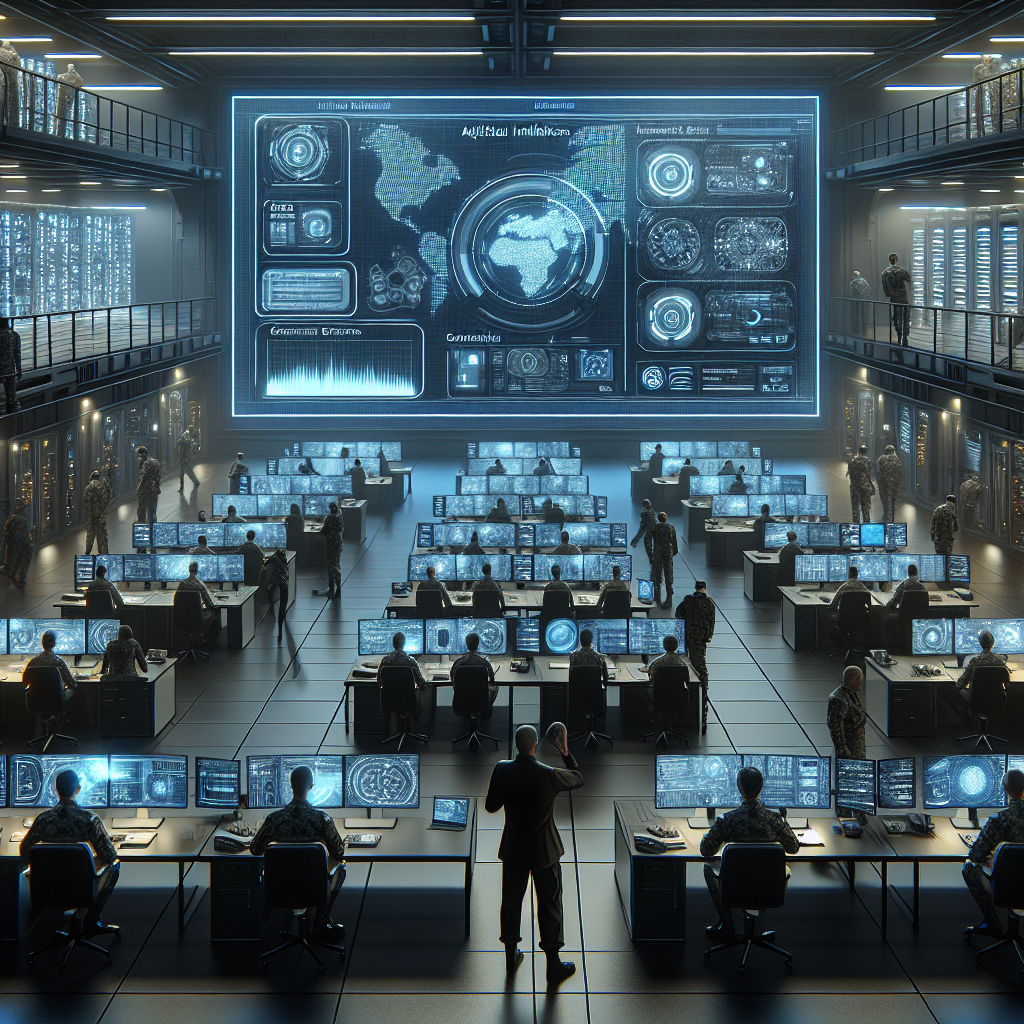How US Tech Giants Supplied Israel with AI Models, Raising Questions About Tech’s Role in Warfare
In recent years, the intersection of technology and warfare has become increasingly complex, particularly with the advent of advanced artificial intelligence (AI) systems. A new report sheds light on how major US tech companies have supplied Israel with AI models, raising profound ethical and moral questions about the role of technology in modern warfare.
The Relationship Between Technology and Warfare
Technology has played a pivotal role in military operations for decades. From the development of radar systems during World War II to the use of drones in contemporary conflicts, advances in technology have fundamentally transformed the nature of warfare. However, the integration of AI into military strategy marks a significant shift, as these systems can analyze vast amounts of data and make decisions at speeds far exceeding human capabilities.
The Proliferation of AI in Military Applications
AI is increasingly utilized in various military applications, ranging from surveillance and reconnaissance to autonomous weapons systems. Governments and military organizations around the world are eager to harness AI’s potential to gain a tactical advantage over adversaries. Countries like Israel, known for its advanced military technology, have become significant players in this arena.
US Tech Giants and Their Role in Supplying AI to Israel
Several leading US tech companies have been implicated in the supply of AI models to Israel’s military. These companies, which include giants like Microsoft, Amazon, and Google, have developed cutting-edge AI technologies that are not only used in commercial settings but are also adapted for military applications.
Collaboration and Contracts
The collaboration between tech companies and Israel’s military has raised eyebrows. Many of these partnerships involve contracts that supply AI tools for various military functions, including data analysis, predictive modeling, and even drone operations. The use of such technologies can enhance Israel’s capabilities in monitoring and responding to threats in real-time.
Ethical Implications of AI in Warfare
The implications of deploying AI technologies in warfare evoke a range of ethical concerns. Critics argue that the use of AI in military operations can lead to dehumanization of warfare, where life-and-death decisions are made by algorithms rather than human judgment. This raises questions about accountability in the event of civilian casualties or other unintended consequences.
The Risks of Autonomous Warfare
One of the most alarming aspects of AI in military applications is the potential for autonomous weapons systems. These systems can operate without direct human control, which poses significant risks. For instance, if an AI system misidentifies a target or fails to account for the presence of civilians, the consequences could be catastrophic. The ethical dilemma here lies in determining who is responsible for the actions of these autonomous systems.
Public Response and Activism
The revelation of US tech giants supplying AI to Israel has sparked public outrage and calls for accountability. Advocacy groups have mobilized to raise awareness about the implications of such collaborations. Protests and campaigns have emerged, demanding that tech companies cease their involvement in military contracts that could enable human rights violations.
Corporate Responsibility
Tech companies are increasingly being pressed to reevaluate their corporate social responsibility policies. Stakeholders, including employees and consumers, are calling for transparency regarding the military applications of their technologies. There is a growing expectation that these corporations should prioritize ethical considerations alongside profit.
The Future of AI in Warfare
As AI continues to evolve, the role of technology in warfare will likely become even more pronounced. The potential for enhanced military capabilities through AI is immense, but it also necessitates a careful examination of ethical frameworks and regulatory measures. The challenge lies in balancing national security interests with humanitarian considerations.
International Regulations
The international community is beginning to grapple with the implications of AI in warfare. Discussions are underway regarding the need for regulations and treaties to govern the use of AI technologies in military contexts. Establishing guidelines that prioritize human oversight and accountability may be essential to prevent misuse and protect civilian lives.
Conclusion
The relationship between US tech giants and Israel’s military underscores the complex dynamics at play in the realm of AI and warfare. As these technologies become increasingly integrated into military operations, the ethical questions surrounding their use will only intensify. It is imperative for tech companies, policymakers, and society as a whole to engage in meaningful dialogue about the implications of AI in warfare and work towards establishing guidelines that prioritize human rights and ethical responsibility.
In a world where technology has the power to shape the future of warfare, the choices made today will have lasting impacts on global security, human rights, and the nature of conflict itself. As we navigate this evolving landscape, we must remain vigilant and advocate for a future where technology serves humanity, rather than jeopardizing it.



